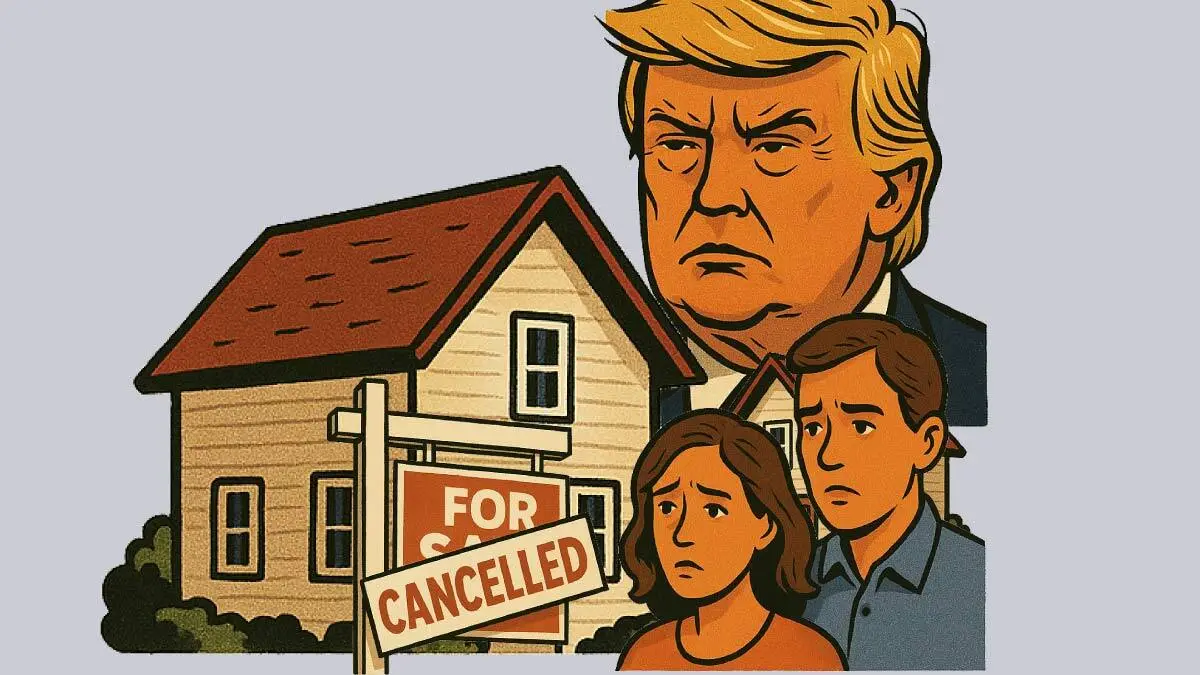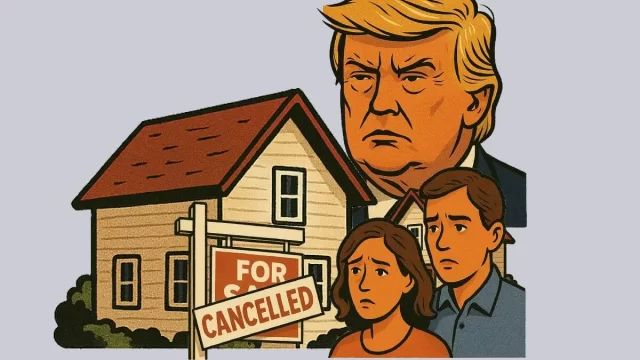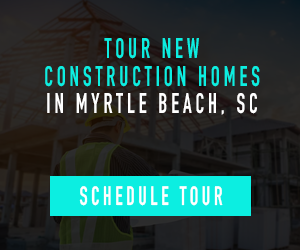
Housing safety net
On the heels of the Trump administration’s tariffs announcement this week, global stocks plummeted and uncertainty rose over where the economy is headed.
“The stock market has had its biggest losses since 2020. The expected impacts of the administration’s tariffs, along with general economic uncertainty, will mean that businesses will hold back on hiring and individuals and families will hold back on spending,” Lisa Sturtevant, the chief economist at Bright MLS, said in a statement.
For Stella, this means Friday’s cancelled deal may just be the tip of the iceberg as more prospective homebuyers begin to weigh economic risks with their desire to purchase a property. With that said, however, he believes this is still a good time to buy property for anyone who is able.
“I don’t know a lot about global markets, but I do know that real estate is a safe harbor investment. So if times are uncertain, go buy real estate,” he said.
In the Greater Boston area, Stella is anticipating home values to increase by 2% to 5% this year, which he said was considered normal price appreciation prior to the COVID-19 pandemic.
“It is a safe place to put your money,” Stella said. “Relative to the tariffs, I just think that real estate becomes a more valuable investment for your dollars.”
Although some consumers may agree with Stella, there are numerous conflicting factors that contribute to whether they ultimately take the plunge to purchase a home.
On one hand, the cooling economic conditions caused by this week’s tariffs announcement are leading to an increase in uncertainty surrounding job security and inflation. This is causing some home shoppers, like Stella’s client, to think twice before purchasing a home. But these same slower economic conditions have also caused mortgage rates to hit some of their lowest levels of the year.
With many buyers sitting on the sidelines waiting for lower rates, it remains to be seen if the latest decreases will cause transaction levels to jump.
“The tariff announcements sent mortgage rates lower but those lower rates may be cold comfort to prospective buyers who are increasingly worried about job security and inflation,” Sturtevant said.
Conflicting opinions
Brian Huskey, the broker-owner of ERA American Real Estate, recognizes that buyers in some markets may be heavily impacted by the stock market. But in his market of Billings, Montana, he said that consumers are happily welcoming lower mortgage rates, despite the macroeconomic uncertainty.
“I’ve had calls from three or four buyers today who are really excited about rates coming down,” Huskey said. “The market here has been frozen all winter and I think these rates are helping it get to a point where it can really open up again.”
Huskey added that there are a lot of small-business owners in his market who are feeling optimistic about the prospect of lower interest rates. This should make it more affordable for them to borrow money and grow their businesses.
Out in Southern California, Michael Nourmand, the president of Nourmand & Associates, sees things a bit differently. Unlike Huskey, he is not so sure that lower rates will be enough of an incentive for a wave of consumers to purchase homes.
“Buyers have become used to rates hovering in the 6% range, and they are either making a move or not, so unless they come down a lot, I don’t see a lot changing,” Nourmand said. “It is still really hard for move-up buyers who might be in their current home with a 3% interest rate.
“On top of the higher rate, they also have transaction and moving costs to consider, and those insurance costs for a new policy are more expensive than renewing their current policy.”
In Dallas-Fort Worth, Texas, homes flew off the market with multiple offers during the height of the pandemic. That is no longer the case, and Brixstone Real Estate agent Mandy Nichols would happily welcome an influx of buyers.
“I remember when I couldn’t find a house in Colleyville, but now we have over 80 on the market and the days on market is close to two months,” Nichols said. “I’m praying the market picks up this spring. The market is just weird right now.”
Although Nichols would love to see more buyers, she is unsure how the latest wave of economic uncertainty will impact consumers in her area.
“I don’t know if people are just kind of holding off to see what happens, or waiting for school to get out, but it is slow right now and I’m not sure it will improve,” Nichols said. “I’m just kind of baffled by the whole thing.”
Nichols said she saw an increase in activity in mid-March during spring break, but activity has dropped again recently even with the decline in mortgage rates.
Mike Pappas, the CEO of The Keyes Company, is also uncertain of exactly how things will play out in the housing market, but he is confident that sales transactions will continue to occur, even if they are not at the level agents and brokers would like to see.
“We are seeing the vicissitudes of life take over and those hesitant to sell can’t wait anymore,” Pappas said. “We are seeing rising inventory and more individuals putting their property on the market because of death, divorce, babies, marriages — all the things that happen in life that then are the real reasons why people buy and sell.”
Hobbled construction market
In addition to indirectly impacting the current level of economic uncertainty experienced by homebuyers, the Trump administration’s tariff announcement is expected to directly impact the new construction market.
In Southern California — which has been heavily impacted by the Los Angeles wildfires — Nourmand anticipates that rising commodity prices for builders will hit consumers even harder than in other parts of the country.
“You have the tariffs, which is one way of making things more expensive, but then you have whole towns — possibly hundreds of thousands of houses — that need to be rebuilt at the same time, raising demand, so as of right now it definitely looks like there will be a surge on pricing,” Nourmand said.
As residents look to rebuild their homes and their lives in places like Pacific Palisades, Nourmand believes these rising costs will influence how many people decide to build new homes.
“The demand for land is going to drop,” he said. “Construction costs are going to go up, and with timelines of 18 to 24 months to build, there is so much uncertainty over how much things will cost by the time the project is done.”
Stella also sees a world where some existing homeowners, who have outgrown their homes, opt to sell rather than renovate or add on — a reversal of what many did when interest rates first began rising in 2022 and 2023.
“The costs of lumber, steel are all expected to go up, and that cost will be passed down to the consumer. So if I have a young family and need more space, instead of doing an addition, I may actually just go buy another house,” he said.
While it’s still a bit early to grasp the full impact of the tariffs, Stella said he has heard that most builders in his area are quoting homeowners anywhere between $700 to $1,000 per square foot for an addition.
“It is just too expensive, but it may help add some inventory to the market, so it may not be all bad news,” he said.
First Time Home Buyer FAQs - Via HousingWire.com








